|
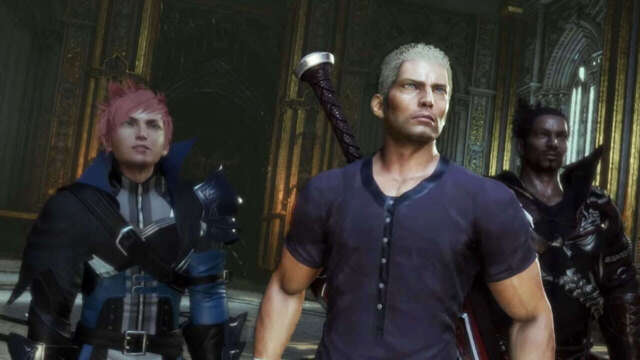
Final Fantasy is one of the oldest and most revered RPG series, and a trailblazer for Japanese and console RPGs. The main series has included 16 numbered entries (not counting a few sequels to those games), and we've ranked them all. But for every numbered Final Fantasy, there are two more spin-offs. The Final Fantasy name is much broader than the mainline games, lending its beloved characters, creatures, and settings to rhythm games, racing games, action-focused adventures, and more. There are a dizzying number of Final Fantasy spin-offs, but we wanted to narrow down only the very best. Keep in mind that these are spin-offs of the Final Fantasy series itself, not individual games within the series. That means you won't see direct sequels or prequels like Final Fantasy X-2 or Lightning Returns--with one notable exception. There was one particular game that was so unanimously named by staff that we had to break our own rules to include it. Consider it a testament to the power of this particular game and see if you can spot it. These are our selections for the best Final Fantasy spin-offs, organized alphabetically.
Chocobo's Mystery Dungeon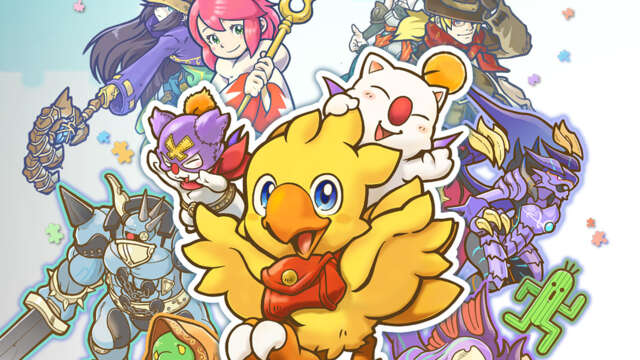
Rogue-likes have risen in popularity in recent years, as shorthand for a genre of run-based games. Most of them are not actually like Rogue, the 1980 RPG, but a few notable exceptions exist, including Pokemon Mystery Dungeon and of course, Chocobo's Mystery Dungeon. These grid-based RPGs have you exploring a dungeon where enemies only move when you do, so positioning is key to victory. Chocobo's Mystery Dungeon: Every Buddy for the Switch and PS4 had a cute art style and a massive roster of Final Fantasy creatures to draw upon.
Chocobo Racing/GP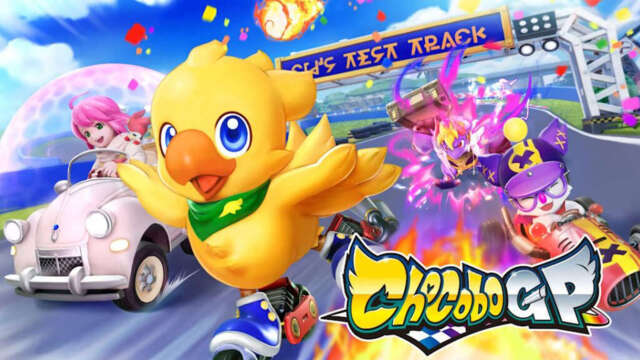
The success of Mario Kart has attracted a slew of imitators, and for a time, just about any series or studio with a deep enough bench of characters wanted in on the action. That was the vibe when Chocobo Racing launched, a Final Fantasy-themed kart racer starring the cute feathered mascot alongside others like Black Mage and Behemoth. It got a recent revival with Chocobo GP for the Nintendo Switch, which received a large update in June removing all microtransactions and making them unlockables in the standard game.
Crisis Core: Final Fantasy 7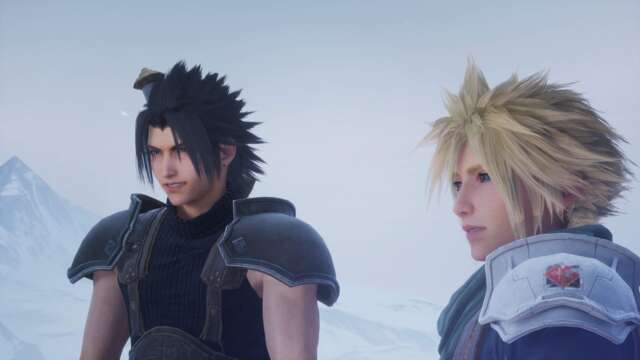
One of the earliest, and best, examples of Square Enix capitalizing on its most popular individual Final Fantasy games, Crisis Core began expanding and exploring the memorable (and profitable!) world of Final Fantasy 7. By taking a closer look at Zack Fair, the Soldier who has a mysterious connection to Cloud in the main story, we got to see the events from a totally different perspective. The PSP game made excellent use of the hardware by delivering a console-like experience and full-fledged 3D action gameplay, with twists like the slot machine mechanic to inject randomness and replayability into enemy encounters. It was so fondly remembered, in fact, that it recently received a remaster, and Zack is also a major element in the ongoing Final Fantasy 7 Remake series.
Dissidia Final Fantasy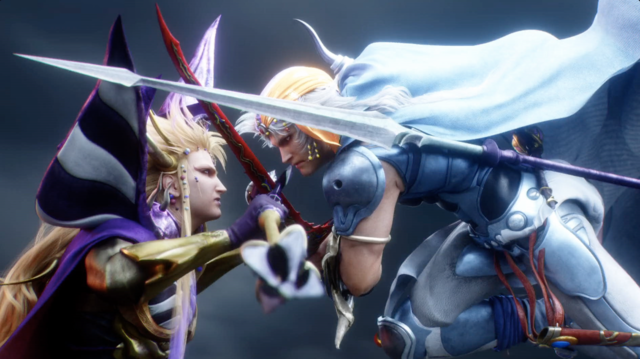
One of the more unusual inclusions, Dissidia is a spin-off series featuring characters from across the entire Final Fantasy series, reframed as a 3D fighting game. Think of it as a Final Fantasy "All-Stars" or the series take on Smash Bros. That means you can finally get that Kefka vs. Sephiroth fight you always dreamed about. And while many of the other spin-offs have come and gone, Dissidia is still relatively modern, having last received a new entry in 2018. That means there may be life in the Final Fantasy fighting sub-series yet.
Final Fantasy Crystal Chronicles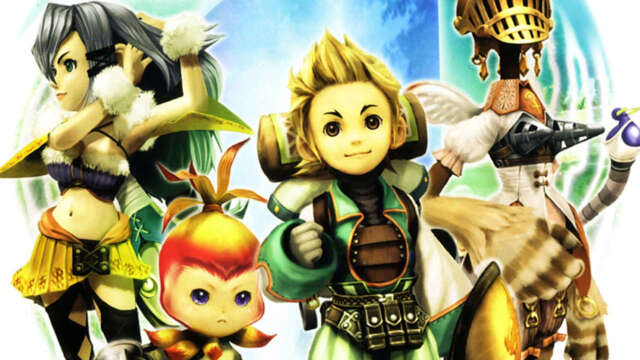
Crystal Chronicles was a co-op Final Fantasy game, originally envisioned to work with the GameCube and its link cables for the Game Boy Advance. The idea was that you and up to three friends could go on a treasure-gathering adventure, showing the main gameplay on your TV screen while each of you used the GBA for your own personalized menu options. It worked relatively well and got a remastered version on Nintendo Switch in 2020. It's especially memorable for its art style, which was more stylized and cartoony than many other entries in the series, but also contained action-RPG gameplay with enough depth to make it worthy of the Final Fantasy name.
Final Fantasy Legend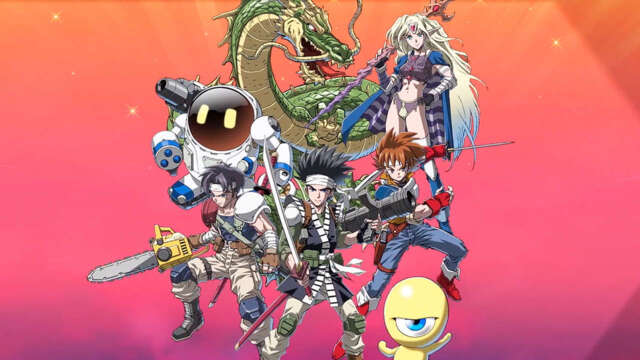
Okay, we'll admit this one is a bit of a cheat. Final Fantasy Legend was not made to be a Final Fantasy game at all, but rather, the first entry in the SaGa series later renowned for SaGa Frontier. It was only when Squaresoft brought it to the West that it was renamed Final Fantasy as a marketing push. As a result, some elements are more recognizable from the Saga series. Still, for many in the West, it was one of if not the first "Final Fantasy" game they experienced, and that makes it a significant part of the series' history.
Final Fantasy: Mystic Quest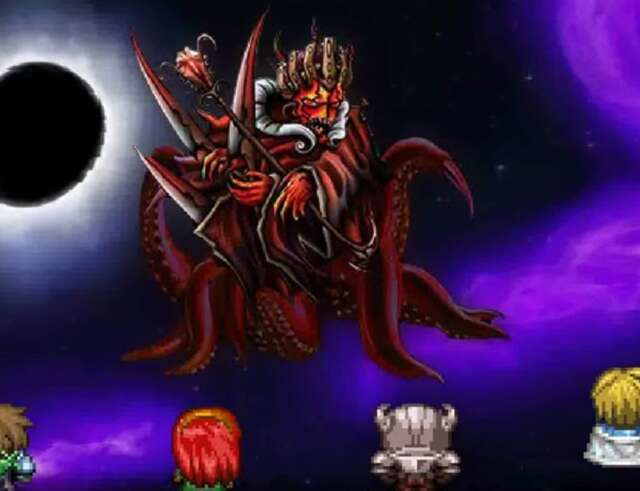
One of the earliest examples of Squaresoft trying to expand the market for RPGs, Mystic Quest was a simplified, stripped-down Final Fantasy meant to ease new players into the genre. It did away with random encounters, revised the combat menus, and simplified the equipment system. The story was similarly simplified, focusing more on a lone hero and monsters consuming powerful magic crystals. It didn't catch on as its own sub-series, but it's an interesting early look at how the franchise looked to attract new players in its early days.
Final Fantasy Tactics
When Final Fantasy tried its own take on the isometric strategy Tactics Ogre, it happened upon one of the most beloved Final Fantasy spin-offs of all time. The first Final Fantasy Tactics combined a rich job system with a stirring, if unevenly translated, tale of betrayals and conspiracy in the kingdom of Ivalice. It received two sequels on the Game Boy Advance, and while those didn't deliver the epic tragedy of the PlayStation original, they mixed in a unique Judge system that granted random variables to battle to emphasize replay value. Its European-inspired high-fantasy setting also served as the inspiration for the main series' Final Fantasy XII, as well as elements of the MMO Final Fantasy XIV.
Kingdom Hearts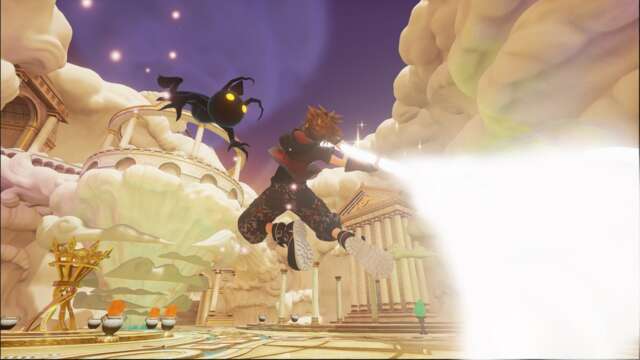
This is a Final Fantasy spin-off, of sorts, that was such a smash hit that it has snowballed into its own brand. Kingdom Hearts was an unusual partnership from the start, letting Square Enix take the reins of Disney's beloved animated classics, merging it with characters from Final Fantasy, along with a new story with original characters that didn't hail from either series. The young boy Sora teamed up with Donald Duck and Goofy to find King Mickey, who went missing looking for the solution to a dark energy that threatened to destroy all the realms. The Final Fantasy crossover elements are light--mostly relegated to an occasional cameo or boss fight against Sephiroth--but they're unmistakably there. More broadly, it carries a spirit of Final Fantasy, which is no accident since the whole project was spearheaded by Final Fantasy 7 lead character designer Tetsuya Nomura.
Stranger of Paradise: Final Fantasy Origin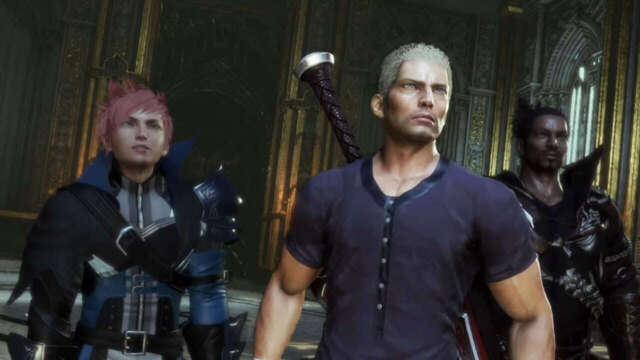
While technically a prequel to the very first Final Fantasy game, Stranger of Paradise is such a bizarre outlier, referencing the entire franchise, that it can't be tied to one particular game. The action game from Team Ninja carries only a select few RPG elements and mechanics, like a robust Job system, as it focuses on Jack Garland's quest to destroy Chaos with his companions. Though his party appears to be the four Warriors of Light, in classic Final Fantasy tradition, the story ultimately turns the concept on its head in some very interesting and unexpected ways.
Theatrhythm Final Fantasy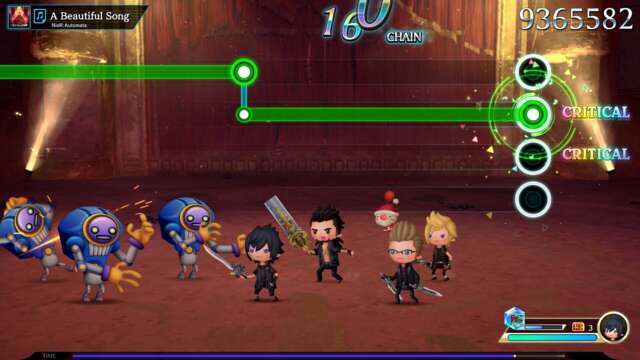
Final Fantasy is known for its iconic music, and the Theatrhythm series is Square Enix's own ultimate homage to its own storied history. The rhythm series debuted on the 3DS, where it used the stylus to tap to the beat of classic Final Fantasy tracks. When it transitioned to the Nintendo Switch and PlayStation with Theatrhythm: Final Bar Line, it was an open question whether the gameplay would translate to buttons. But it does, beautifully, and Final Bar Line is chock full of hundreds of tracks, including more DLC for other classic RPGs like Chrono Trigger. If you love Final Fantasy music, this one is a can't miss.
World of Final Fantasy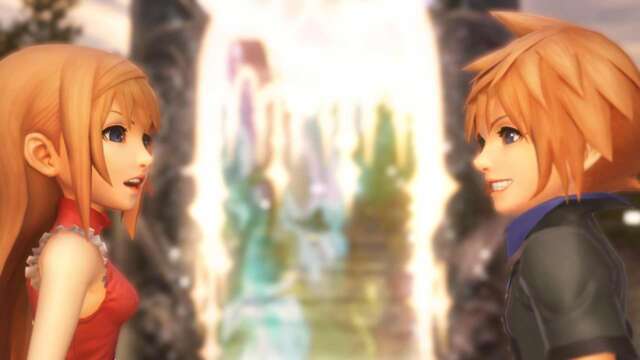
One of the stranger celebrations of Final Fantasy's history and lore, World of Final Fantasy borrowed creatures and settings from the series and recontextualized them with Pokemon-like collection elements. Instead of traditional Final Fantasy battles, World of Final Fantasy relied on a unique stacking mechanic that had you place larger monsters on the bottom and leading to smaller characters on top. It used a unique animated art style to tell an original story, and a later release subtitled "Maxima" added New Game Plus features and let the protagonists transform into adorable renditions of famous Final Fantasy protagonists.
|

















